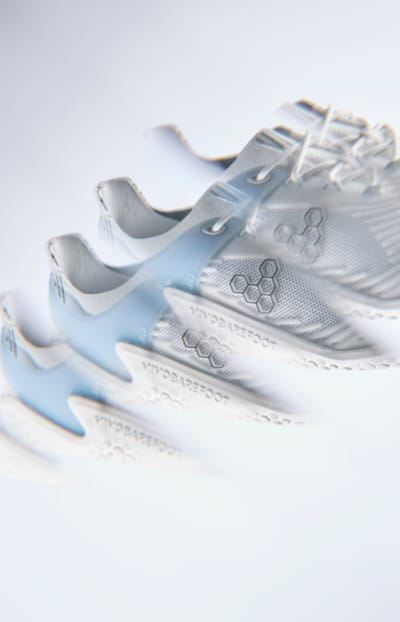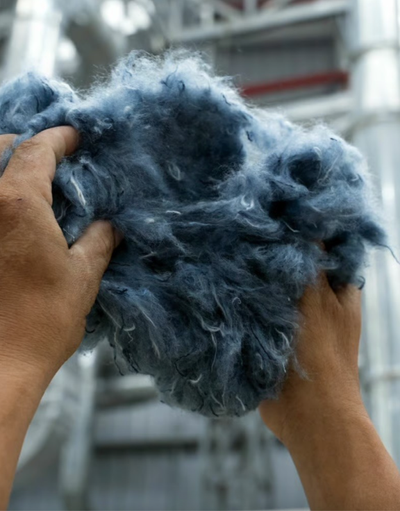This year’s Houston Rodeo saw more than boots and belt buckles. Rheom stepped into the spotlight with two custom Western looks crafted from Shorai™—its 93% biobased leather alternative—marking a bold intersection of style, sustainability and Southern culture.
The looks were showcased in Change your impact, not your life, a short film shot editorial-style across the rodeo and carnival grounds. With dazzling lights, dancefloors, and dust in the air, the video captures the energy of a Houston tradition, as well as Rheom’s belief that sustainability doesn’t mean giving anything up.
“We are based in Houston, a city that thrives on innovation, and one of our biggest events of the year was coming up,” said Megan Beck, Business Development Manager at Rheom and director of the film. “The rodeo goes on for three weeks every spring and it’s a time when everyone gets dressed up and ready. We thought—why shouldn’t Shorai go to the rodeo too?”
That thought quickly turned into a creative sprint. With Shorai™ just arriving in its first full-scale rolls from Bixby International, the team decided to transform the next-gen material into wearable proof of concept. “A few sketches and a couple late nights later, Change your impact, not your life turned into a reality,” said Beck.
The design process was rooted in showcasing the versatility of Shorai™, which comes in interlock-backed, woven-backed, and unbacked formats. The skirt and oversized jacket were designed with stretch and movement in mind, while a structured top made from woven-backed Shorai provided a contrast in silhouette. Unbacked Shorai served as piping, highlighting the material's finesse and flexibility.
“It was important to show that this material doesn’t just look good—it performs,” Beck explained. “The rodeo and carnival are chaotic. We were there on the busiest night, and the garments held up beautifully through everything from spinning rides to two-stepping.”
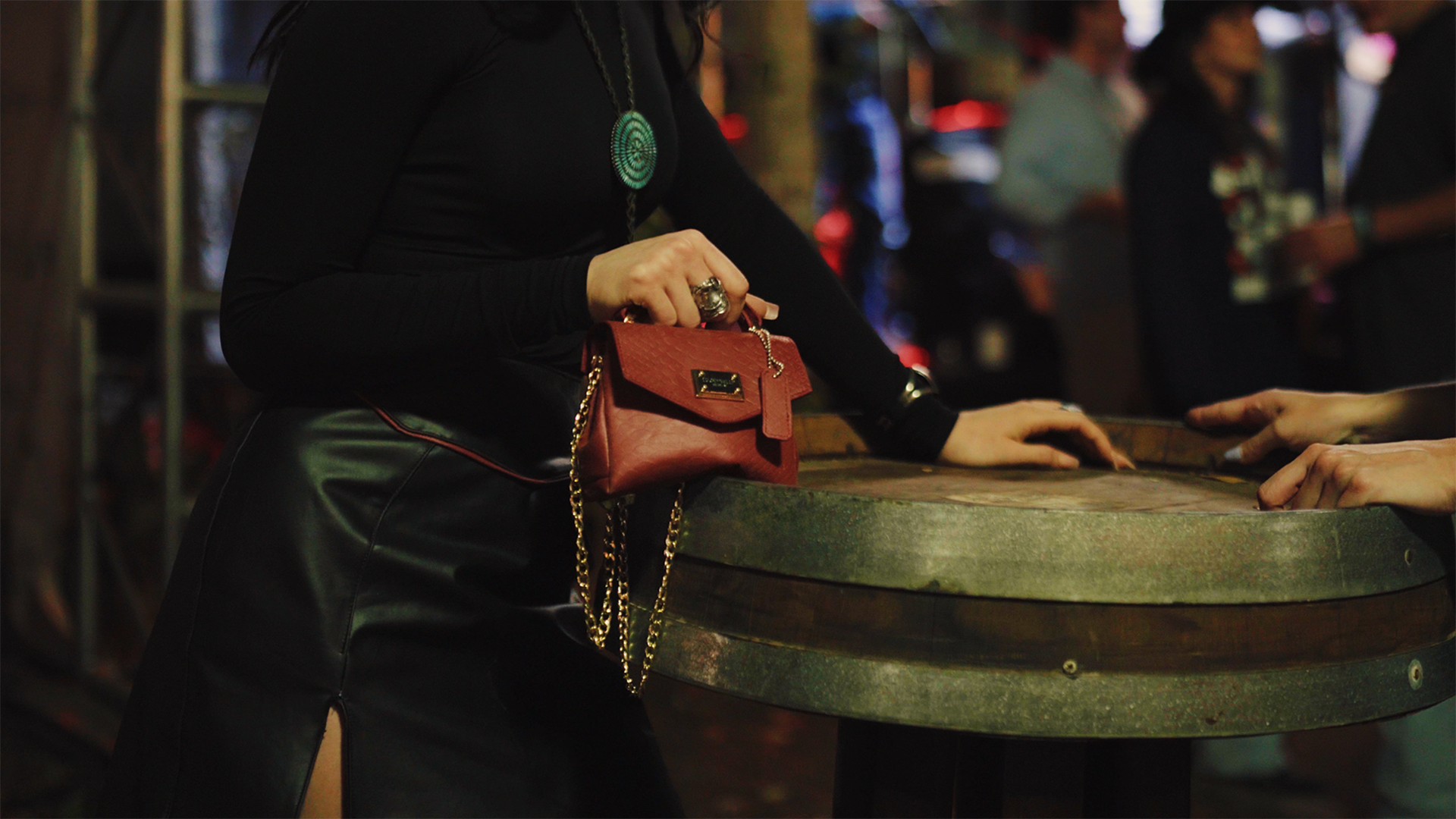
Unlike traditional leather, which requires cutting from specific parts of an animal hide, Shorai™ is manufactured in continuous rolls at 1.5-metre widths. “That makes it easier and more efficient to work with,” said Beck. “It also allows for more flexibility in design.”
Importantly, the material doesn’t require special tools or techniques to sew. “We used a walking foot leather machine and a straight stitch machine, just as you would with traditional leather. We even piped around the yokes to show how the material can be twisted and stitched multiple times without failure.”
But the film’s success goes beyond technique. In scenes bathed in neon and framed by carnival rides, model Savannah moves confidently in her Shorai look. Passersby assumed her outfit was real leather—and were surprised to learn it wasn’t. “When we explained that it was sugar-based, their eyes lit up,” Beck said.
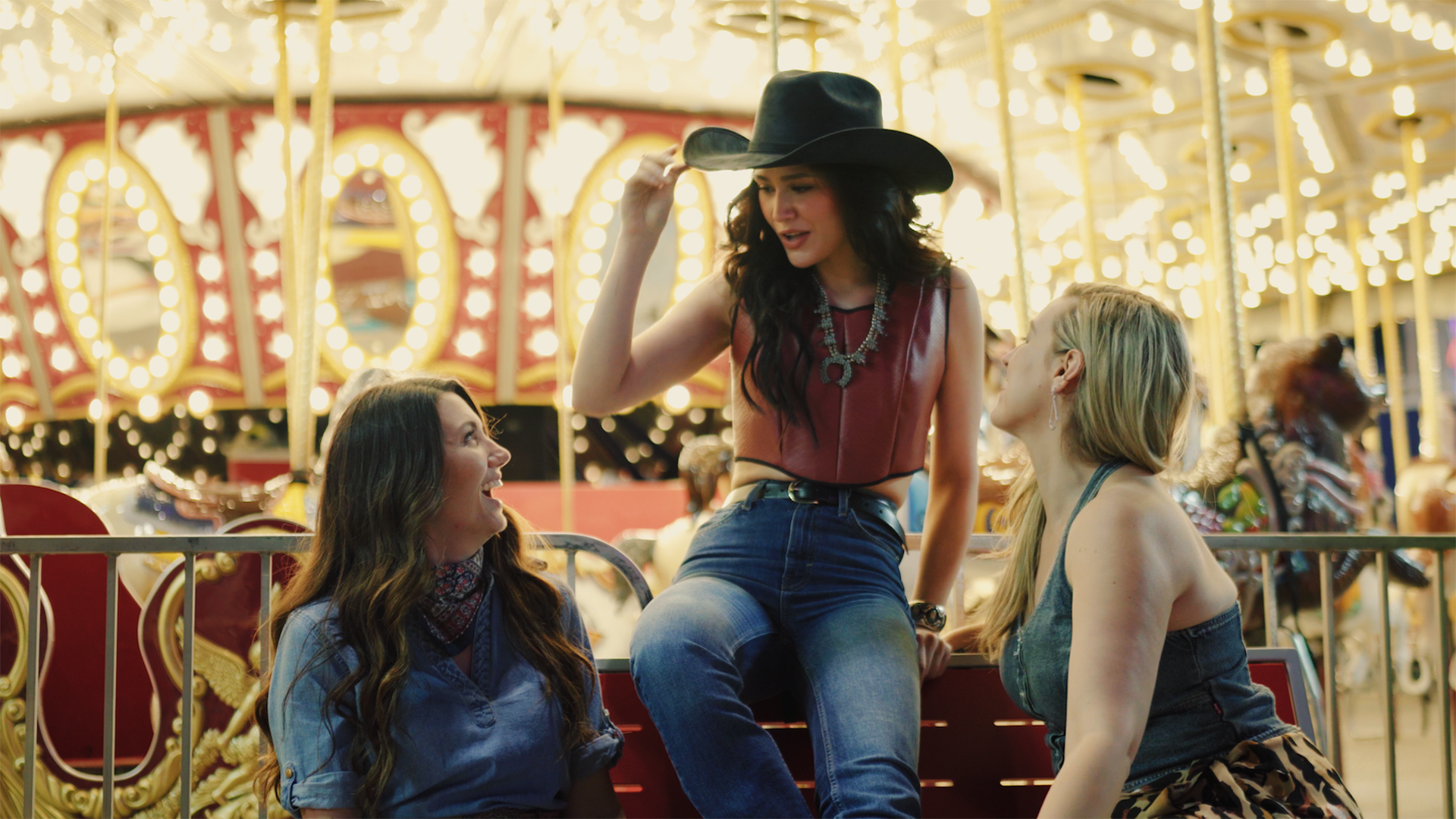
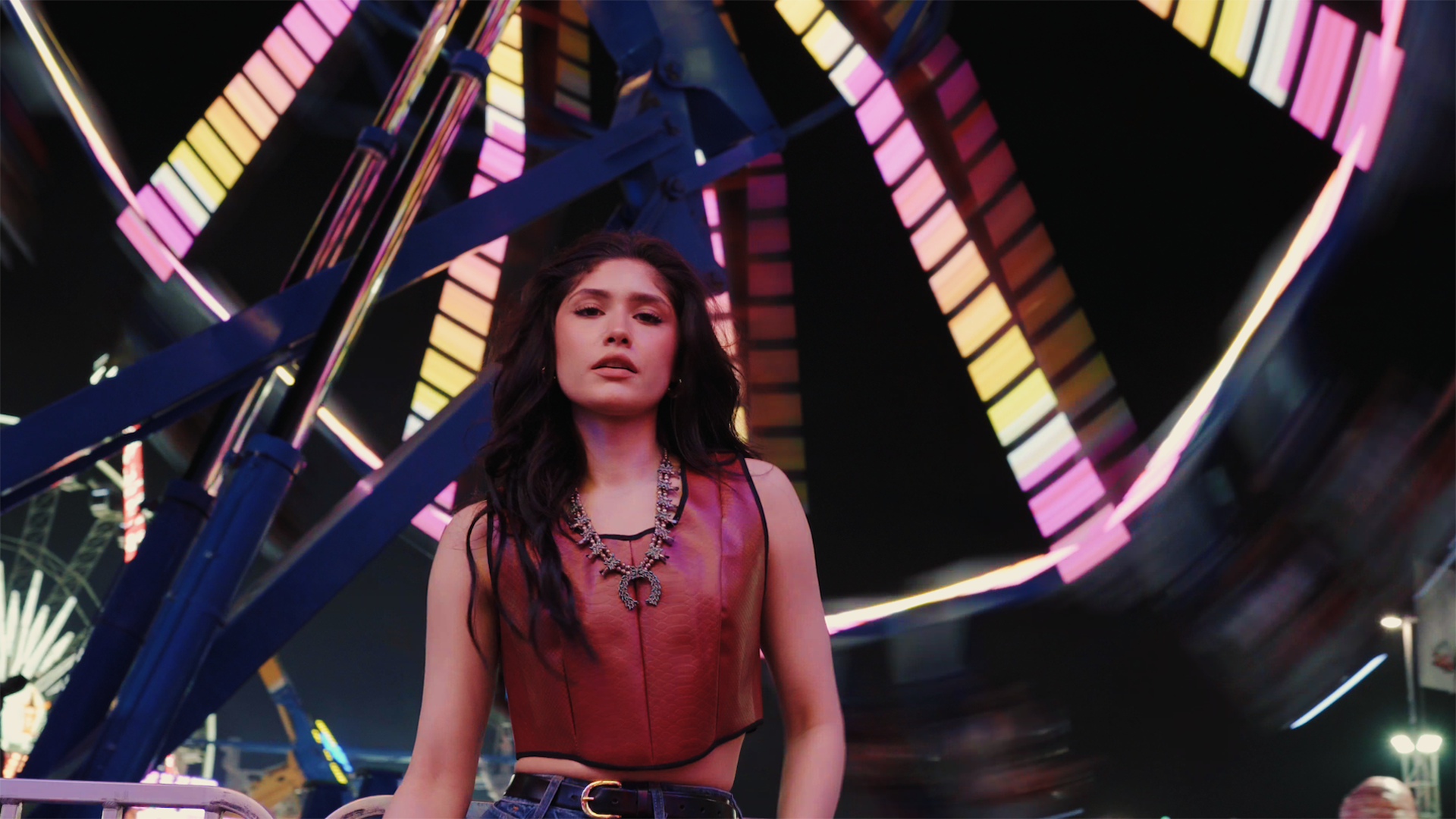
The feedback from both rodeo-goers and industry insiders has been encouraging. “People who know the alternative leather market have been really impressed with its flexibility,” she added.
For Rheom, the rodeo is just the start. Shorai and its sister material, Benree™—a plastic alternative for injection moulding—are gaining traction across fashion, automotive, furniture and cosmetics. “We wanted to show that you don’t have to wait for the future—these materials are ready now,” said Beck.
Next up: Rheom kicks off its first full-width production run of Shorai™ in May and begins a new funding round aimed at accelerating commercial growth and scaling operations across Europe.
In a world searching for sustainable alternatives, Rheom’s rodeo debut makes one thing clear—change doesn’t have to mean compromise.



